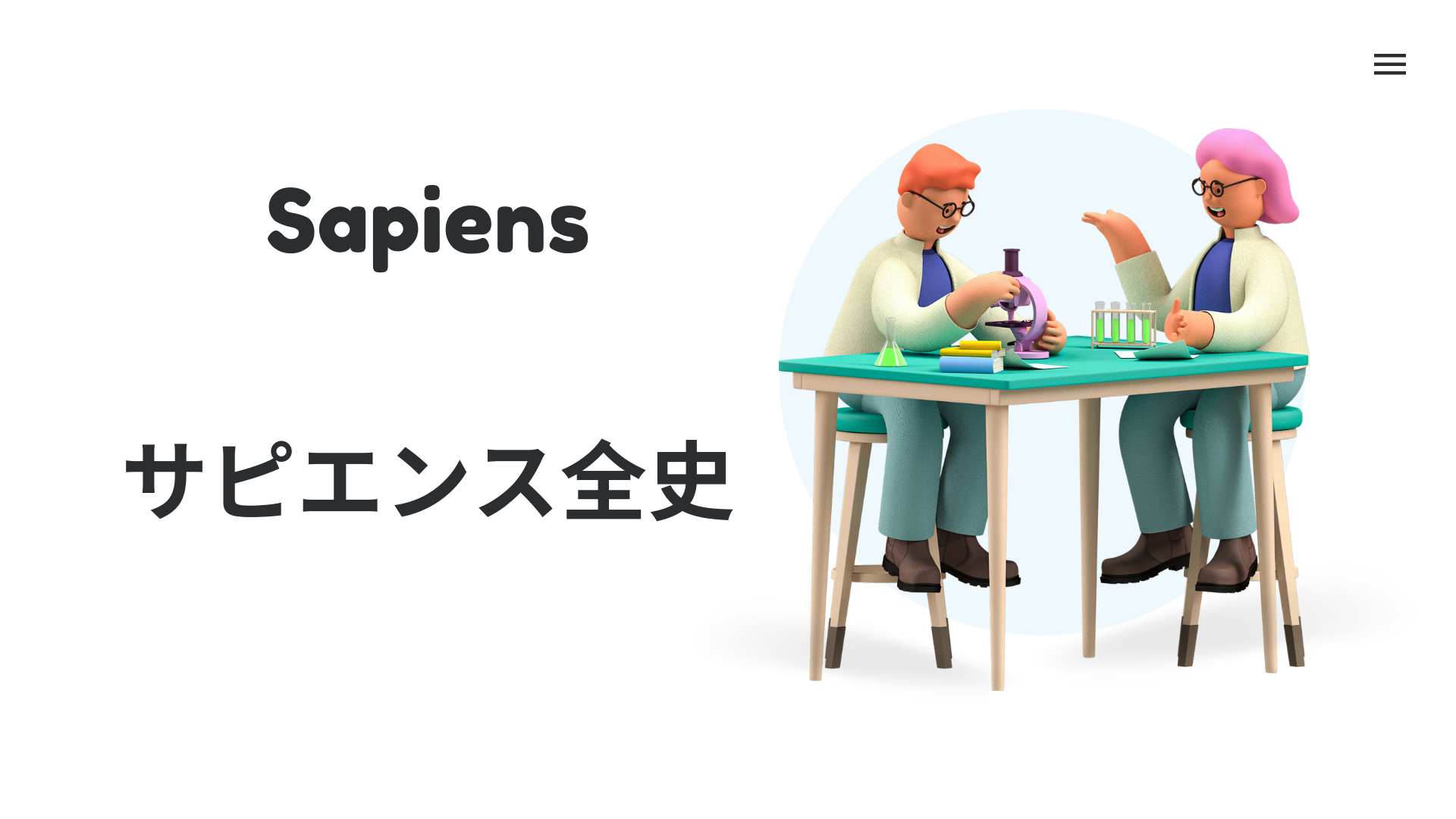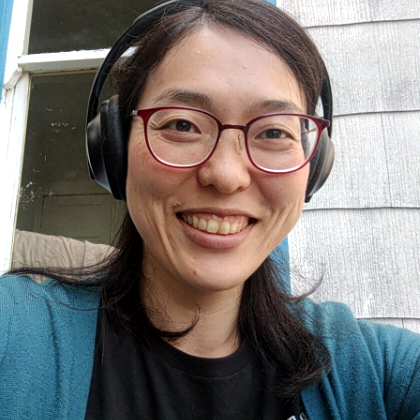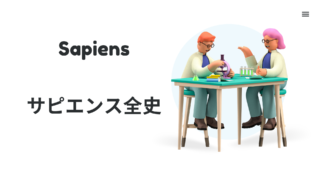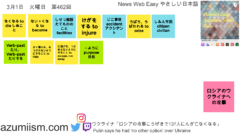
英語でSapiens を読もう📖#20
For English learners!
Hello everyone, how’s your English learning journey going?😃 Reading an English book is sometimes a long journey. You might inadvertently stop if you are alone. But no worries. You are at the right place already. I would like to explore an English book here so that you can try reading the book with me. We are not alone. Let’s enjoy a fun time reading!
The book, which I picked up this time, is called Sapiens, published by Yuval Noah Harari. The Amazon Kindle link below allows you to read up to chapter 3. Today, I am covering the last chapter, chapter 20.
You can check out my recommending strategy of reading as well as a bit of information about this book with a link below. Okay then, let’s get started📖
日本語学習者のみなさん!
みなさん、こんにちは。あずみです。日本語の勉強はどうですか?やさしい日本語で読むのに飽きてきたあなたに、もうワンランク上のリーディングをお届けしたい、ここはそんなブログです。英語部分で私が書いていることを、日本語で書くならこんな感じというのがテーマです。ぜひ、カジュアルな日本語のライティング表現を体験しながら、同時に興味深い本の内容も楽しんでボキャブラリーの幅を広げてくださいね。😃
英語の勉強、はかどってますか?英語の本を読むのって長い旅路ですよね。うっかり止まって挫折してしまうのはとても簡単です。でもこのブログを読んでいるあなたはだいじょうぶ。そんなあなたを応援するのがこのブログです。このブログで私は本を取り上げ、掘り下げていきたいと思いますので、よかったら私といっしょにこの本にチャレンジしてみてください。
今回読む本は、ユヴァル・ノア・ハラリさんの「サピエンス全史」です。本の内容はアマゾンキンドルのリンクから試し読みで確認してみてください。
また、こちらのリンクから英語の本のオススメの読み方について取り上げています📖ぜひ確認してみてくださいね。さぁ、いよいよ最終章の20章を読みましょう。
Ch.20 End of Homo Sapiens
🦧第20章 超ホモ・サピエンスの時代へ
Grasp the structure!🦧構成を把握する

To grasp the chapter, you just try to see its hierarchical configuration. I strongly recommend drawing it either physically or virtually.
階層構造を追い、内容を把握します。実際にメモを取りながらするとはかどります。
All living beings are subject to the same limits, and Sapiens are incapable of breaking free of them.
For close to 4 billion years, every single organism evolved subject to natural selection. Not even one was designed by an intelligent creator.
🚧工事中 🚧
🚧工事中 🚧
🚧工事中 🚧
🚧工事中 🚧
Summarize the chapter concisely🦧章を一言でまとめる

To summarize, check the hierarchical configuration and make sentences with important points of each.
階層構造の各部分のポイントを確認して、文にしてまとめます。
Before, all living beings are subject to biologically determined limits. Today, however, Sapiens have attained capabilities of engineering design by intelligence. This might turn out to be the biological revolution, which is the shift from natural selection to intelligent-design, throughout 4 billion years.
The first of the three ways: Biological engineering for living organisms. Engineer genes and modify shapes, capabilities, needs, or desires. Biological engineering also is applied to extinct beings. While capabilities grow, there are no insurmountable barriers to it.
The second of the three ways: Cyborg engineering, which combines organic and inorganic parts. It would be fundamentally another kind of being when the brain can not only transmit signals that the brain can read in turn, but also receive the electrical signals.
The third of the three ways: Engineering inorganic life. A computer virus is one of them. Engineering an artificial human brain inside of a computer.
The Frankenstein story went under the condition that Sapiens never touch the human spirits, however, scientists could engineer spirits as well as bodies. Sapiens need to think about what do they want to want since it cannot be stopped easily once it is begun.
The animal who never get satisfied and never know what want to do with their power is irresponsible to anyone and likely to wreak havoc on their fellow animals and on the surrounding ecosystem.
かつては、すべての生物が生物学的に決定された制限の中で生きていました。しかし今日、サピエンスは知性によって工学技術力を獲得しています。これは、40億年にわたる自然淘汰による進化からという段階から、インテリジェントデザインによる進化というあらたな段階への移行といえ、将来的にこの移行は生物学的革命と呼ばれることになるかもしれません。
工学技術の一つ目。生物に対する生物工学。遺伝子を操作し、体の形、能力、ニーズや欲求を改変します。絶滅種に対してもこの技術を使用する動きがあります。技術力は高まっており、克服できない障壁はなさそうです。
工学技術の二つ目。生物に無機物を組み合わせるサイボーグ工学。脳が外部から読み取れる情報を送信できたり、電気信号を受信して読み取る事ができるようになれば、もはやそれは人間ではなく根本的に別の種類の存在を生み出すことになるでしょう。
工学技術の3つ目。無機生命体を作り出す生物工学。コンピュータウイルスはその一例です。例えばコンピューター内で人工的に人間の脳を設計する技術などがあります。
フランケンシュタインの物語は、人は人の精神というものには決して触れることができないと前提の元に繰り広げられました。しかしながら現在の技術において科学者は、生物の体だけを改変するだけでなく精神をも設計する技術を獲得しています。この技術工学の発展は一度始まってしまえば簡単に止められるものではなく、手を付ける前にまず人間が本当に欲しているものが何なのかについて考える必要があります。
決して何にも満足せず、自分の持つ力で一体何をしたいのかもわかっていないサピエンスは、誰に対しても無責任であると言え、他の動物や周囲の生態系に大混乱をもたらす可能性があります。
Make questions to discuss🦧ディスカッション用の質問を作ろう

What is the message beyond this presentation? What are the greater issues or questions this piece deals with?
The presentation is not directly referenced in the question. There are many possible answers found outside of the presentation, but it’s a starting point.
このトピックが伝える、もっと大きなメッセージはなんでしょう?このトピックの先にどんな大きな問題が見えますか?
この質問は、このトピックと直接リンクする必要はありません。この話の外側にたくさんの答えがあるでしょう。でも、このトピックがいいスタートポイントになります。
My opinion: I agree with it. The Sapiens’ achievement of engineering will become significant and irregular throughout the history of biology. Organisms who can control their own shapes, behaviors, and feelings would be superior. This would lead to another point that one kind of animal can surpass its biological limits for the first time in history. I imagine engineering would create another level of hierarchy from the current social division which was initially created by Sapiens’ ability to devise imagined orders. Sapiens would be able to choose the gender completely. It would greatly impact gender division. Beauty, youthfulness, gender, sexuality, intelligence would become something one attains through engineering and wealth. This would greatly increase one’s expectations of life and therefore would result in decreased satisfaction. Happiness would become hardly attainable. To sum it up, I think engineering would bring Sapiens a never before unpleasant life.
私の意見:著者の意見に賛成します。サピエンスの科学工学技術の発展は、生物学の歴史を通してみても際立つものであり異質なものです。生物が自身の形や行動、感情さえをも制御することができというのは超然とも言えるでしょう。これは、ホモ・サピエンスという種族が歴史上初めてその生物学的限界を超えることという特別な到達点に繋がるでしょう。科学工学技術は、想像上の秩序を生み出すというサピエンスの能力によって構築した現行の社会的階層のさらに上を行く別次元の社会階層を生み出すでしょう。サピエンスは性別を完全に選択できるようになり、性差別階層に大きな影響を及ぼすでしょう。美しさ、若さ、性別、異性愛者であること、知性、は裕福であることとともに科学工学技術によって手に入れられるものになるでしょう。人の人生に対する期待はひたすらに大きくなり、結果として満足を得ることは難しくなります。幸福はますます手に入れにくいものになるでしょう。つまるところ、科学工学技術によってサピエンスはかつてないほどの不幸な生活を送ることになるでしょう。
To discuss, make questions. It gives you a great topic to talk about in English.
本について話し合うための質問を作ります。作った質問は英語で話をするときのいい話題になりますよ。
five questions for discussion🦧ディスカッション用の5つの質問
How does this make me feel? What does it remind me of?
There are many correct answers that are related to one’s experience; they can be found outside of the text/speech.
この箇所はどんな風に感じますか?何を思い出させますか?
個人の経験に関連するたくさんの答えが本文の外で見つけられることが考えられます。
What does it say?
One correct answer is found in the text.
なんと言っていましたか。
答えは一つです。テキスト内でみつけることができます。
What does it mean? How are the parts connected? what is the reason for people’s actions?
There is more than one possible answer, but the viewer’s opinion is based directly on the text.
ここはどういう意味でしょう?これらの箇所はどう繋がっていますか?この行動にはどんな意味がありますか?
答えは2つ以上考えられますが、質問の答えは本文に直接基づいている必要があります。
What is the message beyond this presentation? What are the greater issues or questions this piece deals with?
The presentation is not directly referenced in the question. There are many possible answers found outside of the presentation, but it’s a starting point.
このトピックが伝える、もっと大きなメッセージはなんでしょう?このトピックの先にどんな大きな問題が見えますか?
この質問は、このトピックと直接リンクする必要はありません。この話の外側にたくさんの答えがあるでしょう。でも、このトピックがいいスタートポイントになります。
How effective is the presentation in whole or in part? Why did the speaker/author make these choices and how well do they work?
Many possible answers can be found outside of the presentation but it’s a reference.
この箇所は全体の中で/この部分においてどう効果的な役割を果たしていますか?どうして話者はこのような表現をしましたか、またそれはどのように機能していますか?
たくさんの答えが本文の議論の外でひとつの例としてみちびかれる可能性があります。
Expressions and terms🦧覚えておきたい単語・表現

Pick some terms that you are unfamiliar with from sentences you high-lightened and memorize them because you need them to discuss this chapter!!
読みながらハイライトした特に重要だと思う文の中から、使い慣れていない言葉を選んで覚えましょう。なぜかというと、ディスカッションで意見や考えを言うために必要になるからです。
| term | example sentence |
|---|---|
| consciousness | As best we know, microorganisms have no consciousness, no aims in life, and no ability to plan ahead. |
| engineer | E. coli have been genetically engineered to produce biofuel. |
| singularity | We may be fast approaching a new singularity. |
| be around the corner | What seems to be just around the corner may never materialize due to unforeseen barriers. |
| 単語 | 例文 |
|---|---|
| 意識 | 私たちに分かっているのは、微生物には意識がなく、生きる目的も、前もって何かを計画する能力もないということです。 |
| 操作する | 大腸菌は、バイオ燃料を生産するように遺伝子操作されています。 |
| 特異点 | 私たちは新しい特異点に急速に近づいているかもしれません。 |
| 間近に迫る | 間近に迫っているように見えるものは、予期しない障壁のために決して実現しないかもしれません。 |

It took about a half year to finish reading this book. It’s taken more months to make these articles. But I am so delighted to get to read this book since I’ve learned a lot that connects to what I am interested in in our society. This book has enabled me to connect a lot of pieces I’ve learned separately in life into one picture. If you finished it, please share your thoughts with me!! Now I cannot help recommending this book to my friends.
この本を読み終えるのに約半年かかりました。これらの記事を作成するのにさらに数か月かかりました。この本は私が社会の中で関心を持っている多くのことに関連があったので、読むことができて本当にうれしく思っています。この本のおかげで、人生で学んできたバラバラの情報それぞれ一つのフレームの中におさめる作業ができたように感じています。もしこの本を読み終わったという方いらっしゃったら、ぜひ感想を教えてください!!一緒にサピエンスを語りましょう。私は今、この本を友達に勧めることをせずにはいられなくなっています。





コメント